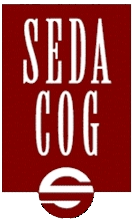APEX- Standards and Specifications
- Home
- /
- Departments
- /
- Selling to the Government (APEX)
- /
- APEX- Standards and Specifications
Standards and Specifications
Government solicitations or bids often refer to various types of requirements, standards, or specifications such as packaging, types of materials, shipping, or marking, that are cited only by reference. There are generally two types of specifications, military standards or specifications and commercial standards or specifications that have been adopted by the government.
ASSIST QUICK SEARCH:
Quick Search is a public website that lets users search for defense and federal specifications and standards, military handbooks, commercial item descriptions, data item descriptions, MS detail drawings, Qualified Product Lists (QPLs), and related technical documents prepared in accordance with the policies and procedures of the Defense Standardization Program (DSP). Quick Search Basic Search provides several ways to search for documents. Depending on the method selected, search terms entered, filters selected, or date range specified, a search may locate a single document or return a list of documents. Each listed document has a unique identifier (called a Document ID) and each is linked to a Document Details page that displays information about the document and lists all available document parts comprising that document’s revision history.
Other Federal References:
DLA Internet Bid Board System (DIBBS): This website allows contractors is a web-based application that provides the capability to search for, view, and submit secure quotes on Requests For Quotations (RFQs) for Defense Logistics Agency (DLA) items of supply. DIBBS also allows users to search and view Request For Proposals (RFPs), Invitations For Bid (IFBs), Awards and other procurement information related to DLA.
Defense Supply Center Columbus (DSCC): This web site provides courtesy copies of documents managed at DSCC including drawings, specifications. Here you can download electronic copies of specifications, standards, handbooks, drawings, and commercial item descriptions. Electronic commodities covered include passive components, electromechanical components, connectors and sockets, semiconductors, microcircuits, wire and cable, and fiber optics. Hardware commodities covered include hoses, fittings, vehicle and engine components, pumps, pipe, tubing, and powered and nonpowered valves. This web site contains documents for which DSCC is a technical agent or Preparing Activity (PA). Other documents not under DSCC purview can be obtained from Assist Quick Search.
DSCC Military Specifications and Drawings: This web site provides courtesy copies of documents managed at DSCC. If you cannot find a document here, it may not be managed at DSCC.
Defense Supply Center Philadelphia (DSCP): Each year, DSCP supplies and manages food, clothing and textiles, pharmaceuticals, medical supplies, general and industrial items in support of America’s warfighters worldwide and their eligible dependents. This site contains DSCP’s Quality Assurance Provisions.
- DLA Land and Maritime Qualified Suppliers List: QSLM is the Qualified Suppliers List for Manufacturers, while QSLD is the Qualified Suppliers List for Distributors. The QSLM/QSLD qualification program encompasses the latest thinking on commercial practices and incorporates these elements into the Defense Supply Center Philadelphia (DSCP)General & Industrial (G&I) Directorate’s acquisition streamlining. Under the program, they pre-qualify manufacturers and/or distributors to supply categories of G&I procured items based on an assessment of the provider’s applied process controls. Applicants must demonstrate that the controls which they have in-place and use on a daily basis comply with the established QSL Criteria, providing maximum assurance that the products procured conform to specification requirements.
COMMERCIAL STANDARDS:
Some federal agencies, including DoD, have adopted certain commercial standards for use in federal contracts. Most commercial standards can be purchased on-line with the use of a credit card.
ASME (American Society of Mechanical Engineers): The American Society of Mechanical Engineers, today’s ASME is a 120,000-member professional organization focused on technical, educational and research issues of the engineering and technology community. ASME sets internationally recognized industrial and manufacturing codes and standards that enhance public safety.
ANSI (American National Standards Institute): ANSI promotes the use of U.S. standards internationally, advocates U.S. policy and technical positions in international and regional standards organizations, and encourages the adoption of international standards as national standards where they meet the needs of the user community. The ANSI eStandards Store is an online electronic standards web-based ordering and delivery system which will allow you to.
ASTM (American Society for Testing Materials): Download or order mail delivery of any of ASTM’s 12,000+ standards, covering metals, petroleum, construction, the environment, and more.
DOE (Department of Energy) Technical Standards Program: Approved and draft DOE technical standards are provided in one or both of the following formats: PDF files that can be viewed and printed through Acrobat Reader or HTML.
NASA (National Aeronautics and Space Administration): The NASA Technical Standards Program is to adopt for Agency use technical standards that have been developed by non-Government Standards Developing Organizations, either national or international. Where there is a need by the Agency for a technical standard, and none exist or is under development by a non-Government Standards Developing Organization, the NASA Chief Engineer via the NASA Technical Standards Program (NTSP) sponsors the development of the NASA Engineering Standard. Also, after five years, each NASA Engineering Standard is reviewed and action taken either to re-affirm, revise, or replace the standard. Users may apply for an account online by selecting the appropriate site (“NASA Access” or “PUBLIC Access”) and then selecting the link for “Register to obtain password” on the log on screen. Upon approval, you will be notified of your new account and password via e-mail.
SAE (Society for Automotive Engineers): The Society of Automotive Engineers has more than 84,000 members – engineers, business executives, educators, and students from more than 97 countries – who share information and exchange ideas for advancing the engineering of mobility systems. SAE is your one-stop resource for standards development, events, and technical information and expertise used in designing, building, maintaining, and operating self-propelled vehicles for use on land or sea, in air or space.
